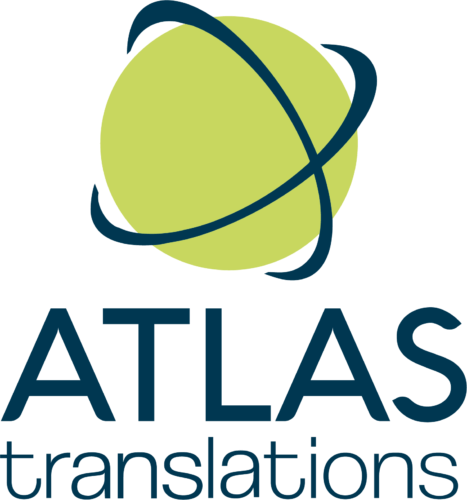6 Key Industries Where Localisation Is Not Optional For Business Operations
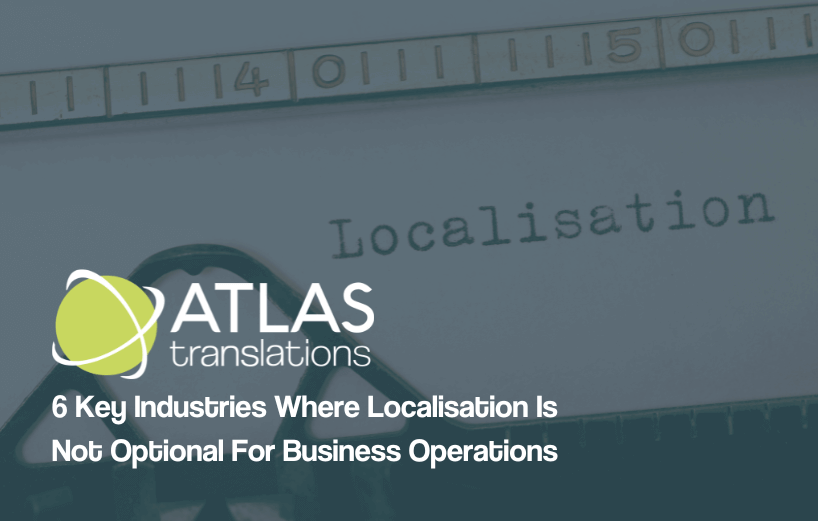
You can’t ignore localisation. Okay, technically, you can, but you won’t be doing your organisation any favours, especially if your business sits in a high-stakes industry. Whether you’re handling legal documents or heading up big pharma research, speaking the local language doesn’t only involve translation—it involves compliance, credibility, and connection.
So, which industries absolutely need expert localisation baked into their processes? Here are six—yes, there are many more, but we’re short on space—key industries that need localisation for effective business operations and to guarantee their success in local and global markets.
Pharmaceuticals and Healthcare
When the Wrong Words Really Can Cause Actual Harm
This sector is one of the most highly regulated on the planet—for good reason. Lives are at stake.
From clinical trial protocols and informed consent forms to patient-facing materials and regulatory submissions, everything has to be translated with precision. Not just the language but culturally and technically, too.
- Misunderstood dosage instructions? Hello, litigation, lawsuits, and lots of problems
- Poorly translated drug labelling? Now, you’re putting patient safety at risk
- Missed compliance terms? Your life-altering product might not make it to market
Atlas Translations works with experienced linguists who understand the life sciences industry inside and out. These aren’t just language experts—they know the localised terminology, the legal frameworks, and the urgency behind every word.
Legal and Financial Services
There’s No Room for Ambiguity Here
Legal documents and financial statements live and die by their accuracy. A single mistranslation can change the meaning of a contract—or worse, render it void. And when you’re working across jurisdictions, that’s a risk you cannot afford to take.
This industry deals with:
- Cross-border contracts and compliance reports
- Insurance documents and annual financial filings
- Court transcripts, affidavits, and client correspondence
This is where localisation comes in because it’s not just about fluency—it’s about nuance. Legal and financial language is dense, often technical, and riddled with sector-specific terms. Atlas pairs clients with native-speaking translators who specialise in these fields, so your documents hit the mark every time.
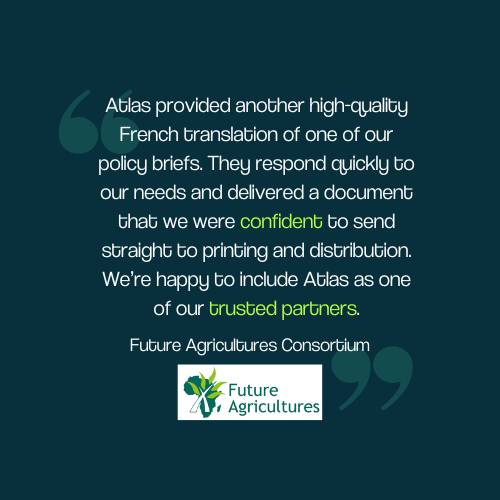
eCommerce and Retail
Talk the Talk—Or Lose the Sale
People are more likely to buy when they feel confident and understood. That starts with the language used on your retail website, product listings, checkout pages, and post-purchase communications. If anything feels “off,” consumers bounce—fast.
Some eCommerce pitfalls we’ve seen?
- Auto-translated product names that make zero sense
- Awkward sizing charts or shipping info
- Checkout processes that confuse international buyers
Localisation isn’t just a box to tick—it’s how you build trust with customers who’ve never heard of you. Atlas helps brands speak naturally to every audience in every market without sounding like a bot or worse—like they just don’t care.
Education and eLearning
The Right Words Make All the Difference
If your educational content is being delivered globally, localisation isn’t just a value-add—it’s essential for genuine learning.
Think about it. You might have designed the best e-learning course known to humankind, but it’s worthless if your learners can’t connect with the language. If they can’t connect, they can’t learn, and if they can’t learn, they won’t retain. This is bad enough in any industry, but when it comes to compliance training or technical instruction, it upgrades to a major problem.
Atlas has helped organisations to adapt through:
- eLearning modules for different regional audiences
- University materials for international students
- Training programmes for global teams
Localisation in education isn’t just about converting text—it’s about capturing tone, context, and cultural references that actually make sense to your learners.
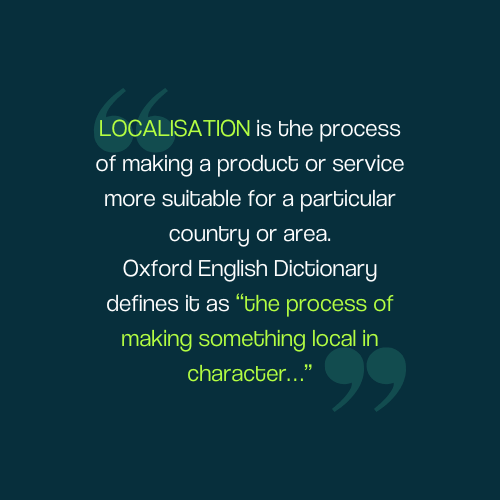
Information Technology
User Experience Doesn’t Translate on Its Own
Interfaces, buttons, help articles, onboarding flows—they all need localisation. But it’s not just about changing the language. Formatting, layout, tone, and even iconography may need to shift to feel “right” in another culture.
And yes, the details do matter. For example:
- Text expansion in translated languages can break your user interface (UI)
- Idioms in English might be totally meaningless elsewhere
- Formality levels can vary wildly across countries, regions, and even localities
Atlas Translations works with tech companies to streamline the localisation process from the start—so your app, software, or platform speaks to your users in a way that actually resonates.
Tourism and Hospitality
A Warm Welcome Starts With Words
Travellers don’t want to feel like outsiders. They want clear information, friendly communication, and a sense that they’re understood. That means localisation across all your tourism touchpoints—from hotel websites and travel guides to safety signage and restaurant menus.
Let’s face it, nothing kills the mood like:
- A poorly translated welcome message (or just plain lack of one)
- Disconnected booking and stay instructions
- Safety notices that leave guests confused and potentially in danger
The tourism and hospitality sector runs—newsflash—good experiences! The language used and how it’s used is a huge part of that. Atlas helps hospitality providers speak confidently to international guests—and avoid awkward missteps.
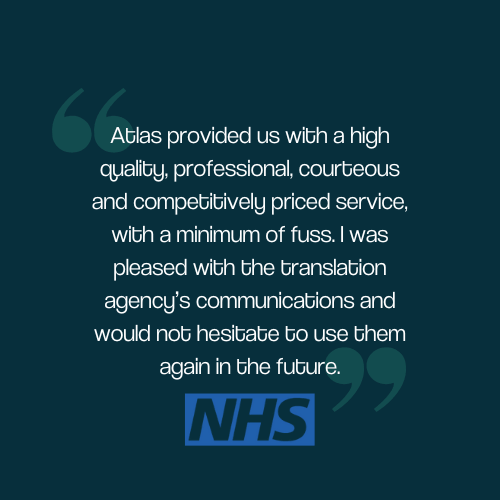
Summary
All industries can benefit from localisation, but some industries simply can’t afford to do without it. Whether it’s about safety, legality, or customer experience, the stakes are too high to take shortcuts.
Atlas Translations works with businesses across every one of these sectors, providing human expertise, cultural fluency, and technical accuracy where it counts. That’s how we’ve earned the trust of our clients—and why they come back time and time again.
Contact Us
We’d love for you to contact Atlas Translations! We’re always here for a chat or to answer questions!
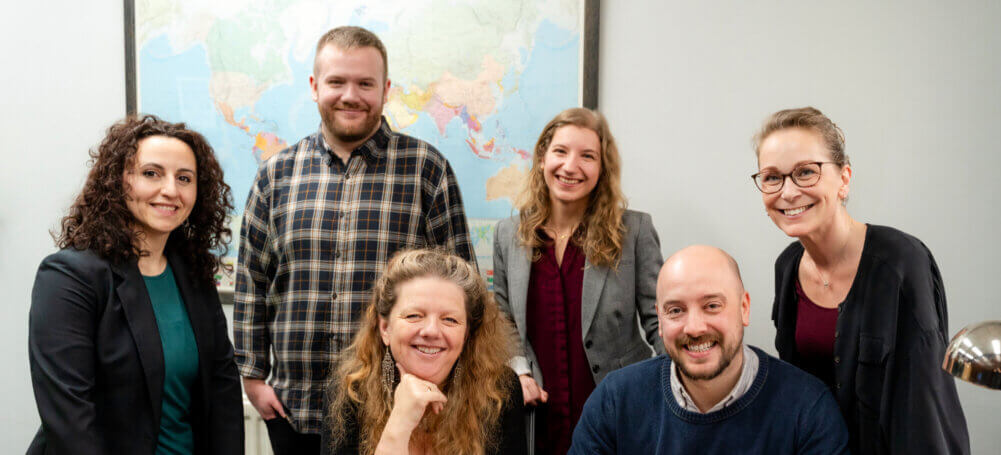
Call us on +44 (0)1727 812 725 or email us at team@atlas-translations.co.uk to let us know what you need. We respond quickly to all enquiries!
If you’d like to meet us face to face, learn more about our translation and language services, or deliver documents, please email or call us ahead of time to arrange a meeting.
Use the Live Chat option during UK working hours to ask us any questions. You’ll chat with a real, live human—we’re a bot-free zone! Just click the little icon at the bottom right of your screen to start chatting with us.
If you need a quick quote, we have a handy Get a quote button located at the top of our website where you can get an estimate for your needs.
Can I Trust Atlas Translations?
Yes, you can! But if you’re after something a little more concrete, here’s some info:
Atlas Translations holds two ISO certifications — ISO 9001:2015 (Quality Management) and ISO 17100:2017 (Translation Services).
If the project is highly confidential, we can sign a non-disclosure agreement (NDA) for added peace of mind.
Are you wondering if we’re up to date on privacy? We registered with the Information Commissioner’s Office (ICO) over 20 years ago and have always placed a high importance on data protection.
You can read more about our commitment to quality here.
Atlas Translations prides itself on providing fast, friendly, and high-quality language services. But don’t just take our word for it—see what our clients are saying about us.
We’re also on TrustPilot, and you can read our reviews here.
Global Voice, Local Touch
If you’re looking for some Top Tips for partnering with Atlas Translations, we have some Top Tips to share! We answer 25 of our clients’ most frequently asked questions, ranging from typesetting queries to discussing reference materials.
Click to download Global Voice, Local Touch
